White campion (white cockle)
August 24, 2015
Silene latifolia Poir.
Life cycle
Annual, biennial or short-lived perennial.
Leaves
Seedling leaves initially develop from a basal rosette. Basal leaves are attached to the stem by petioles; stem leaves are without petioles. Leaves are opposite, softly hairy with a grayish tinge, and lance-shaped to oval with a pointed tip and smooth to slightly wavy leaf margins.
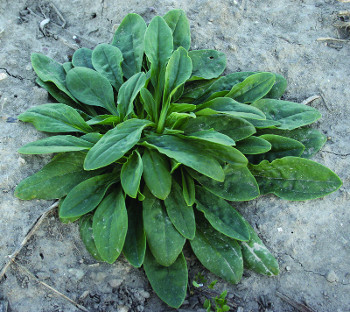
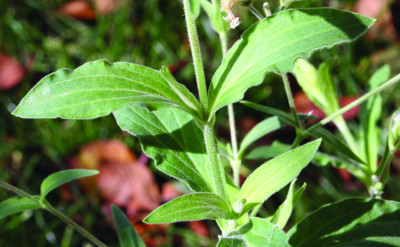
White campion rosette (left). Opposite leaves of white campion (right).
Stems
Soft, hairy stems are erect or semi-erect at maturity, and up to 3 feet tall. Stems have swollen nodes and often branch at the base.
Flowers and fruit
Male and female flowers are produced on separate plants. Flowers have five showy, white petals, each with a deep V-shaped notch at the tip. Just below the petals are fused and inflated sepals that create a balloon-like appearance. Fruit are light brown, vase-shaped capsules with 10 teeth at the open end. Each capsule contains numerous brown to gray, kidney-shaped seeds.
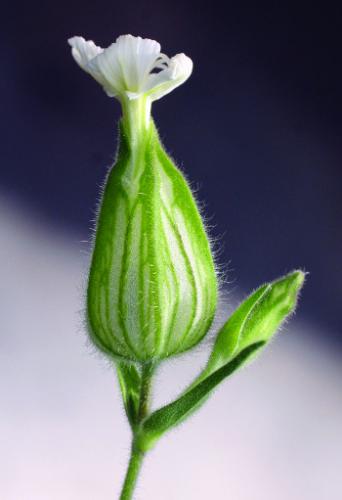
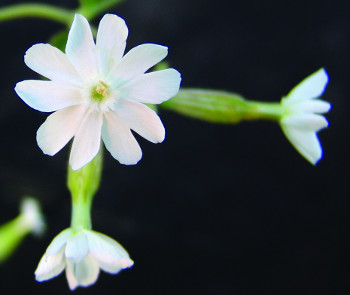
Balloon-like sepals of white campion (left). Deeply notched petals of white campion (right).
Reproduction
Seeds and root fragmentation.
Similar weeds
Bladder campion [S. vulgaris (Moench) Garcke] Differs by having a strong perennial nature, hairless stems and leaves, and globeshaped fruiting capsules.
Nightflowering catchfly (S. noctiflora L.) Differs by having an annual habit, sticky hairs on the stems and leaves, flowers containing both male and female organs, and fruiting capsules with six teeth at the open end.
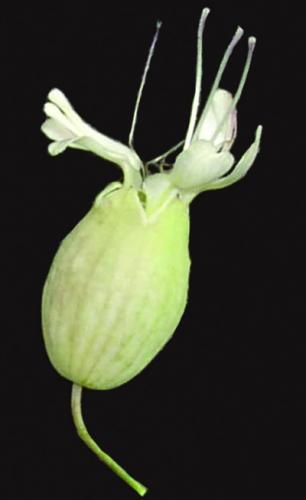
Bladder campion flower.
Print a PDF of this page: White campion



 Print
Print Email
Email



